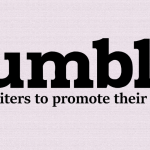Leadership is a crucial skill for all aspects of life, from personal development to professional achievement. Whether you’re managing a company, leading a family, or navigating a community endeavor, knowing how to effectively manage people might mean the difference. Fortunately, literature has provided us with timeless insights on leadership. From ancient classics to contemporary works, leadership books include tactics, concepts, and motivational stories to help us become better leaders. Here, we will look at the top ten best leadership books in literature that will help you on your journey to leadership excellence.
Start with Why: How Great Leaders Inspire Everyone to Take Action, by Simon Sinek, is a game-changing book that delves into the fundamental question of why some people and organizations succeed while others fail. Sinek develops the “Golden Circle,” a concept that emphasizes beginning with “Why”—the primary purpose or idea that motivates actions—before addressing “How” and “What.” The book uses real-world examples from legendary leaders like Martin Luther King Jr. and corporations like Apple to demonstrate how clarity of purpose inspires loyalty and encourages teams. This book is vital for leaders who want to make genuine connections and generate positive change.
You may also like: What is Typesetting? A Beginner’s Guide to Perfect Page Layout
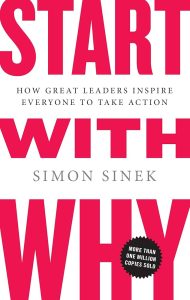
Start with Why - Best Leadership Books
Dare to Lead: Brave Work. Tough conversations. Brené Brown’s Whole Hearts is a revolutionary leadership approach that focuses on vulnerability, courage, and authenticity as the foundations of effective leadership. Brown, drawing on decades of research, challenges traditional views of leadership by arguing that empathy and trust are crucial attributes. The book provides actionable ideas for promoting open communication, navigating uncomfortable conversations, and forming resilient teams. Its emphasis on building bold leaders encourages readers to embrace pain and lead wholeheartedly, making it an invaluable resource for personal and professional development.
You may also read: What is an Antihero? Traits, Motivations & Famous Examples
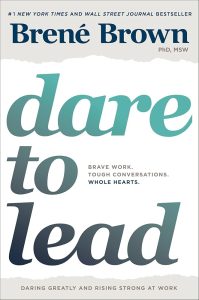
Dare to Lead - Best Leadership Books
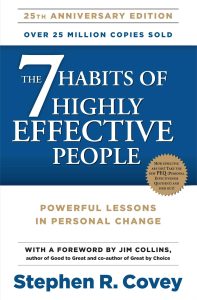
The 7 Habits of Highly Effective People - Best Leadership Books
Dale Carnegie’s How to Win Friends and Influence People, first published in 1936, remains a timeless self-help book. The book is well-known for its practical counsel, which teaches readers how to enhance their interpersonal skills, form meaningful connections, and succeed professionally. Carnegie’s beliefs emphasize empathy, genuine appreciation, and a grasp of human nature. It is organized into actionable sections and includes tactics for remembering names, actively listening, and avoiding judgment. It is widely considered a classic, having inspired millions throughout the world and remaining a cornerstone in the disciplines of communication and personal development today.
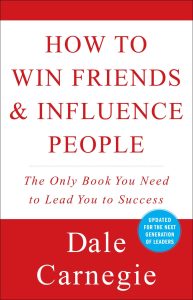
How to Win Friends and Influence People - Best Leadership Books
John C. Maxwell’s book The 21 Irrefutable Laws of Leadership: Follow Them and People Will Follow You is a well-known resource for building leadership skills. The book, published in 1998, provides 21 concepts, or “laws,” that are essential to being an effective leader. Maxwell draws on decades of experience as a leadership coach to provide real-world examples, fascinating tales, and practical guidance. Each law, such as the “Law of Influence” and the “Law of Respect,” emphasizes the characteristics that successful leaders have. The book has received widespread appreciation and continues to be a valuable resource for anybody looking to improve their leadership effectiveness.
You may also like: Positive Character Traits And Why They Are Crucial
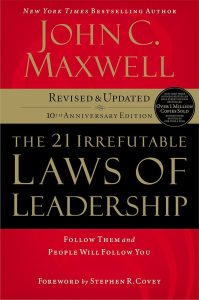
The 21 Irrefutable Laws of Leadership - Best Leadership Books
Patrick Lencioni’s The Five Dysfunctions of a Team is a captivating business book that delves into the basic issues that impede team success. The book, presented as a leadership tale, dives at five key dysfunctions: lack of trust, fear of conflict, lack of commitment, avoidance of accountability, and failure to focus on results. Lencioni’s realistic characters and compelling storytelling provide concrete insights for developing cohesive and high-performing teams. This book is widely considered a vital resource for leaders and managers seeking to develop cooperation, improve communication, and achieve corporate success.
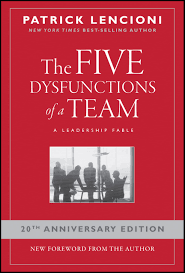
The Five Dysfunctions of a Team - Best Leadership Books
Daniel Pink’s book Drive: The Surprising Truth About What Motivates Us delves into the science of human motivation, challenging traditional concepts of extrinsic rewards such as money and grades. Pink contends that intrinsic motivators (autonomy, mastery, and purpose) are significantly more powerful at driving performance and enjoyment, particularly in creative and cognitive pursuits. The book, which draws on psychological and behavioral science research, demonstrates how old “carrot-and-stick” tactics frequently impair involvement. Pink provides actionable ideas for individuals and companies to create environments that promote innovation and fulfillment.
You may also read: How to Write An Epilogue: Step-By-Step Guide
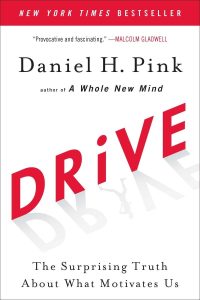
Drive - Best Leadership Books
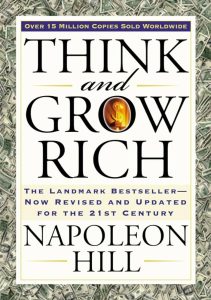
Think and Grow Rich - Best Leadership Books
The Effective Executive, by Peter Drucker, is a key guide on increasing personal and organizational efficiency. The book, originally published in 1967, highlights the significance of time management, prioritization, and decision-making for executives to produce meaningful results. Drucker discusses fundamental principles such as emphasizing contributions over duties, making strengths productive, and establishing clear priorities. The book is essential for professionals looking to maximize their impact, combining timeless concepts with practical advice. Its lessons are still relevant for modern leaders negotiating difficult work situations.
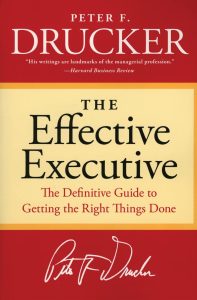
The Effective Executive - Best Leadership Books
First, Marcus Buckingham’s Break All the Rules is a breakthrough book that questions conventional management knowledge. Based on substantial Gallup data, the book contends that effective managers do not adhere to traditional standards, but instead focus on utilizing employees’ strengths rather than correcting faults. Buckingham cites important elements that distinguish excellent managers, such as the value of individualization and providing a conducive climate for employees to succeed. The book provides practical insights into developing effective teams, increasing employee engagement, and cultivating a performance culture, making it an invaluable resource for leaders across industries.
You may also read: Fatal Flaw: Definition, Types, Examples & More
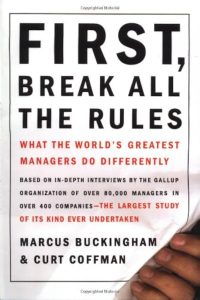
First, Break All the Rules - Best Leadership Books
Final Thoughts
Leadership is a journey, not a destination, and the appropriate books can serve as effective guides along the road. From ancient wisdom to modern techniques, these leadership classics offer vital lessons for personal and professional development. Each book on this list acts as a beacon, illuminating the route to become a more effective, compassionate, and forward-thinking leader. So, pick up one of these motivational books and take the first step toward mastering the art of leadership. Your journey starts now.









